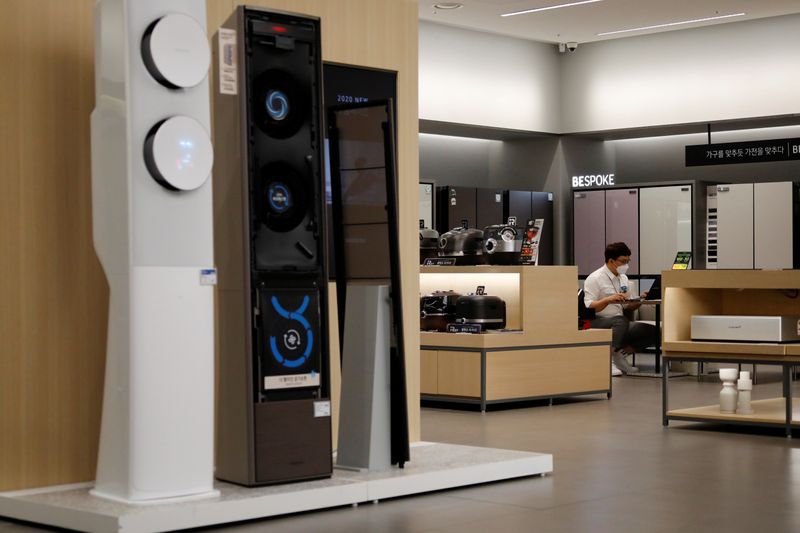By Joyce Lee
SEOUL (Reuters) - From sanitising closets to customisable fridges, the coronavirus pandemic has fanned demand for home appliances - so much so that Samsung Electronics (OTC:SSNLF) Co Ltd (KS:005930) is adding warehouses and bringing popular products to more markets.
In particular, consumers have been willing to splurge on products that make their homes cleaner.
In Brazil and other emerging economies, households which once relied on maids are now investing in dishwashers and robot vacuum cleaners, while Samsung says its overseas sales of air purifiers jumped more than five times in January-July compared to the same period last year.
Samsung's AirDresser, a closet that steam cleans clothes and kills bacteria, has seen a spike in sales with British furniture firm Lux Group ordering 1,000 earlier this year. Big fridges have also climbed in popularity as people cooking more often at home seek more freezer space.
"Sales are doing well in all but a few countries," Lee Jae-seung, executive vice president of Samsung Electronics' digital appliance business, told Reuters in an interview.
He said factories for Samsung's appliances business in the United States, Mexico, Poland, India and other countries were running at full capacity and the company was seeking more warehouse space in the United States, South Korea and Europe.
"There was a lot of pent-up demand in the U.S and elsewhere," Lee said. He added that many consumers seemed willing to spend money they might have otherwise used on trips and outdoor activities to upgrade their household interiors.
In its home market, Samsung's "Bespoke" refrigerators drove its fridge sales up 30% in the first half from the same period a year ago. The fridges, which come in a wide range of compartment sizes, panel types and colours that can be mixed and matched, were launched in China and Russia this year and will be sold in northern Europe from October.

Samsung does not disclose home appliance earnings, but according to UBS, its home appliance business made an operating profit of 337 billion won ($284.48 million) in the April-June quarter, up about 30% from a year earlier according to Seoul-based KTB Securities.